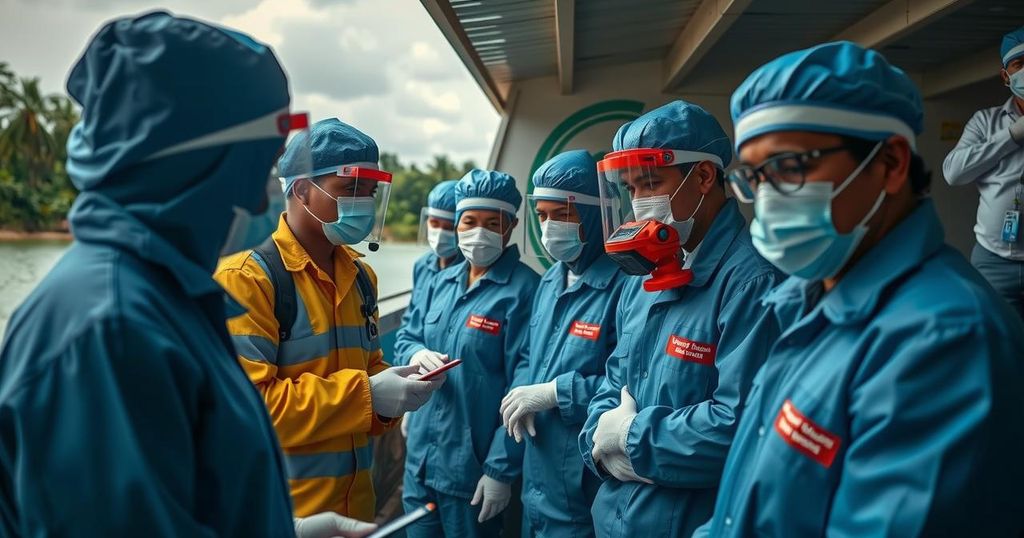The WHO has dispatched a health team to the DRC to investigate a mysterious disease that has resulted in at least 79 deaths and nearly 400 reported cases. Symptoms include flu-like manifestations, and health authorities estimate the actual death toll may be higher. The outbreak underscores the DRC’s historical struggles with dangerous diseases, prompting urgent public health measures and community vigilance.
The World Health Organization (WHO) has sent a health team to the Democratic Republic of Congo (DRC) to investigate a mysterious and lethal disease that has resulted in the deaths of at least 79 individuals since late October. Currently, there are nearly 400 reported cases of this unidentified illness, primarily affecting children and women. Symptoms include flu-like effects, such as fever, headaches, coughing, and difficulty breathing, with additional incidents of anemia reported. Local health officials suggest that the actual death toll could be higher, estimating up to 143 fatalities.
Health authorities are actively encouraging the community to remain vigilant, advising individuals to report any unusual deaths or symptoms and to follow strict hygiene protocols to prevent further transmission of the disease. This response follows a striking pattern in the DRC, which has a historical context of managing severe outbreaks, including Ebola and Marburg Virus Disease. The announcement follows WHO’s ongoing collaboration with national authorities to address and explore the nature of the outbreak.
As of now, WHO spokesperson Tarik Jašarević has confirmed that the organization is making efforts to understand this situation, although no timeline has been provided for laboratory test results. The urgency of the investigation is compounded by the DRC’s long struggles with deadly diseases, urging an immediate and coordinated response from health officials. Furthermore, there have been recent cases of Marburg outbreaks in neighboring countries like Rwanda, further stressing the regional health landscape.
This operation represents another critical intervention by the WHO to safeguard public health as the organization continues to monitor and respond to emerging health threats across the region.
The Democratic Republic of Congo (DRC) has historically faced numerous health crises, including the Ebola virus and Marburg Virus Disease. These outbreaks highlight the DRC’s vulnerabilities and underscore the need for prompt healthcare responses. Recent unidentified disease outbreaks intensify the urgency of effective health measures, particularly due to the region’s past experiences with rapid disease transmission. As the WHO deploys resources to investigate the current situation, there is a pressing need for public awareness and preventative measures to combat potential health threats.
In summary, the recent outbreak of an unidentified disease in the DRC has led to significant fatalities, primarily among women and children and underscores the necessity for urgent investigation and intervention by health authorities. The WHO’s active role in this crisis reflects the challenged health landscape in the region, demanding coordinated efforts and heightened public vigilance to manage and contain emerging health threats. As reports continue to unfold, the collaborative response between local and international health organizations remains crucial for safeguarding public health.
Original Source: bnonews.com






